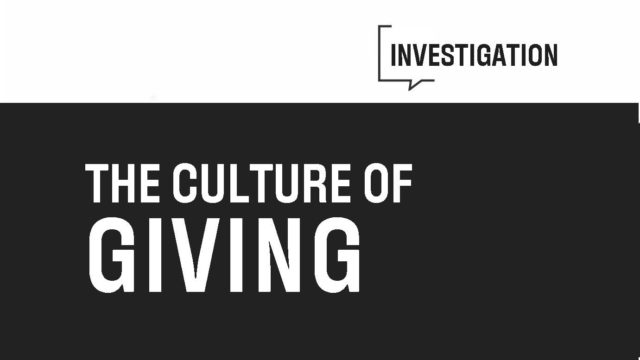At Porte Parole, we like to create works that tackle major social issues head on, by sharing ideas in a constructive dialogue to which everyone is invited to contribute. This philosophy, rooted in a respect for the strong intelligence of our audience, does not only apply to the stage. In a spirit of transparency, and in keeping with its founding principles, our company would like to reflect out loud on a critical and delicate issue for any cultural organization: financing.
Is theatre a consumer good?
Although ubiquitous, money issues are particularly thorny, especially when it comes to soliciting donations, whether from individuals, foundations, or corporations. “That’s why it’s important to talk about it,” says Maxime Bertrand, Director of Philanthropic Development at Porte Parole. “I think the more people are educated about these issues, the more they will feel involved in the process.”
That desire is obviously shared by founder Annabel Soutar, who refuses to think of her relationship with the public – and donors – in mere transactional terms. “We want people to attend our shows not just to consume entertainment; but to be in conversation with the creative team,” she explains. “It’s the same with fundraising: if someone donates, whether it’s $25 or $10,000, we want them to do so because they share our values and because they believe in the power of documentary theatre to engage in dialogue and make things change.”
Ticket price: a fair reflection of reality?
While the pandemic has had a devastating impact on the performing arts community, it has raised important questions about the funding issues facing creators. The “solidarity ticket” initiative, which allowed ticket holders of cancelled shows to convert their seats into donations, was particularly enlightening. “It was a wake-up call for many people, and it convinced us of the importance of turning audiences into donors in a sustainable way,” explains Maxime Bertrand. “People don’t always understand that the ticket they buy is subsidized. Without donations and subsidies, it might cost twice as much as what they pay!”
“People don’t always understand that the ticket they buy is subsidized. Without donations and subsidies, it might cost twice as much as what they pay!” – Maxime Bertrand
This desire for transparency, which is one of the company’s cardinal values, is not always easy to implement. For example, should Porte Parole print tickets that would indicate the amount paid by the spectator and the amount provided by donors? This is not on the table for the time being. But there is a desire to address these issues in a frank manner, respecting the intelligence of the audience and donors. “In our exchanges with donors, we’re trying to give more precise information,” says Mira Cliche, Communications Manager. “People often don’t realize how expensive it is to put on a documentary play: from the initial research to the first performance, a creation can require a budget ranging from $190,000 to $600,000.” And to make it happen, Porte Parole needs more than just full houses. In fact, donations from individuals, foundations, and corporations account for about 20% of the company’s overall budget.
From spectator to actor: the strenght of a community
But how do you create philanthropic momentum in a society? And when the money comes in, how do we maintain our editorial independence and creative principles while giving back to those who support us? The questions are many… “It sounds like a simple thing to say, but you have to listen to people; it’s one of our core principles,” summarizes Annabel. “All our creative work is based on that: we start by meeting and interviewing people before bringing their words to the stage; we want to understand them. If we want to be true to our values, we need to be able to apply our artistic process to philanthropy. It’s by acting with integrity that we will attract people who share our vision.”
“If we want to be true to our values, we need to be able to apply our artistic process to philanthropy. It’s by acting with integrity that we will attract people who share our vision.” – Annabel Soutar
Annabel dreams of a diverse donor community, where corporations, foundations and individuals each have a seat at the table. “At the moment, we don’t have the human resources to have the kind of dialogue with donors that we would like to,” explains Annabel. “But we need to work on that. Our future depends on this community.”
Strengthening and sustaining these links with the donor community is a big part of the work of Maxime Bertrand, who sees Porte Parole as a true social actor. “We want to go beyond the framework of documentary theatre: we want to be a platform for exchange and dialogue on major democratic issues,” he continues. Annabel Soutar agrees. “For us, it is important to create an environment where everyone feels respected. Regardless of their means, we want people to feel like they can be part of this community.” And that’s priceless.
This paper is just the beginning of our reflection. Over the next few months, Porte Parole will continue its investigation by talking with experts from all walks of life, as well as donors like you.
Any suggestions on questions you would like us to explore or experts we should talk to? Email us at info@porteparole.org




